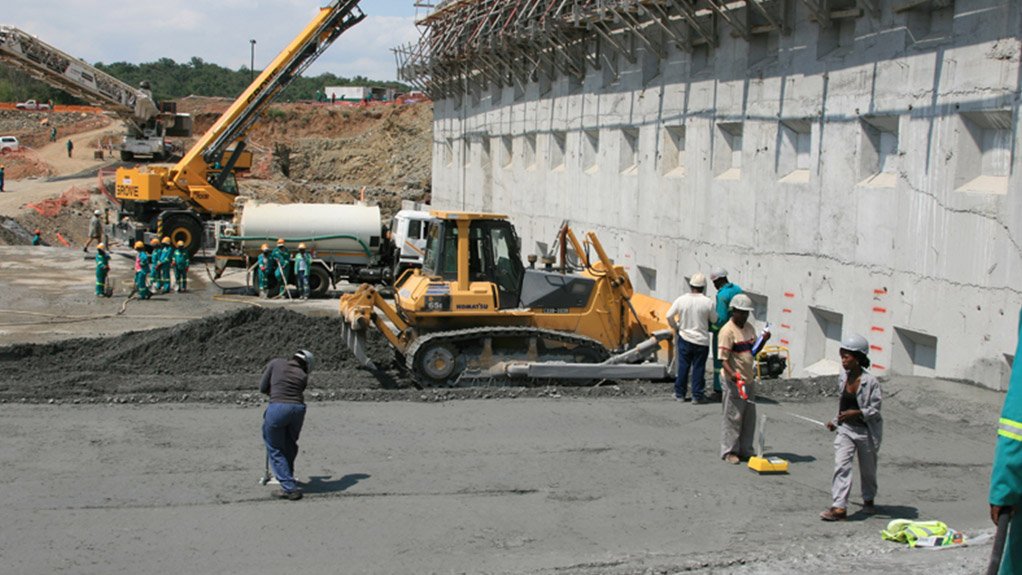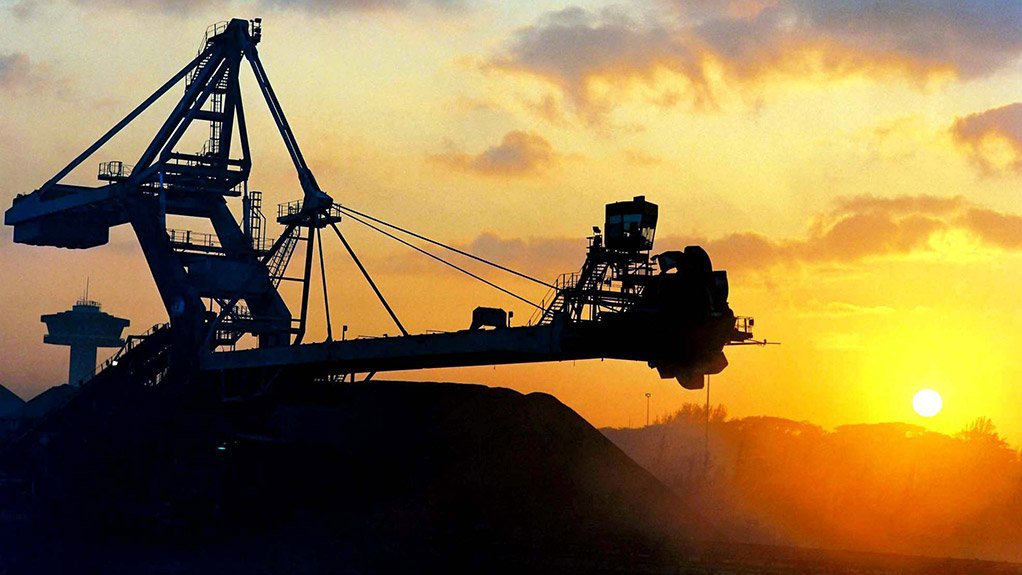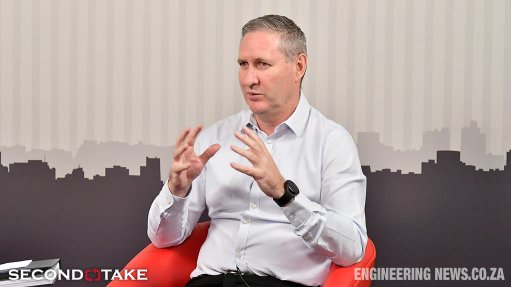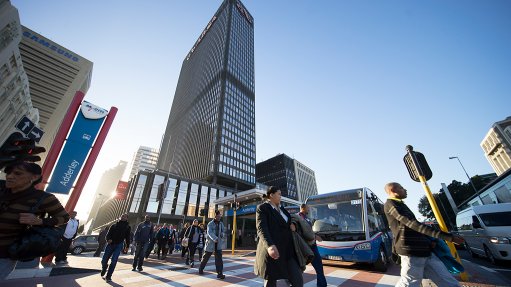Construction projects face challenges owing to skills shortage - ATI



QUALITY STANDARDS The South African construction industry faces severe problems regarding construction project delivery owing to skills shortage and low quality standards
LONG-TERM INFRASTRUCTURE Delays, skills shortage and poor worker participation may affect the Presidential Infrastructure Coordinating Commission’s 18 Strategic Infrastructure Projects
The South African construction industry, which many expect to go through a high growth phase this year, owing to an increased number of construction projects, and a greater focus on housing projects and large-scale infrastructure projects, is facing severe problems regarding construction project delivery, states black-owned artisan training company Artisan Training Institute (ATI) director Sean Jones.
These problems stem from a lack of capacity, skills shortage and quality standards, adds Jones.
ATI focuses on training artisans in a range of engineering-focused skills, including fitters and turners, welders, electricians, boilermakers and earth moving mechanics.
“We are hearing about serious delays in projects, lack of skills, and low levels of worker participation. Given these factors, it is a distinct possibility that some of the bigger projects, that form part of government’s current Medium-Term Expenditure Framework (MTEF), will be badly constructed, or simply take too long to complete.”
The Presidential Infrastructure Coordinating Commission’s 18 Strategic Infrastructure Projects, which cover social and economic infrastructure across all nine provinces, are a major part of government’s long-term infrastructure plans. The 2013 MTEF budget process focuses on incorporating these projects into departmental planning and changing the composition of expenditure in favour of such infrastructure and infrastructure development, according to the South African National Treasury.
Cabinet established the Presidential Infrastructure Coordinating Commission, which developed the Sips and work had started on all 18 Sips in January, 2013.
The projects comprise five geographical-focused Sips, three spatial Sips, three energy Sips, three social infrastructure Sips, two knowledge Sips, one regional integration Sip and one water and sanitation Sip.
The Geographic Sips are Sip 1: Unlocking the northern mineral belt where the Waterberg is a catalyst, Sip 2: The Durban-Free-State-Gauteng logistics and industrial corridor, Sip 3 : South Eastern node and corridor development, Sip 4: Unlocking opportunities in the North West, Sip 5: Saldanha Northern Cape Development Corridor.
The Spatial Sips include Sip 6: integrated municipal infrastructure projects, Sip 7: integrated urban space and public transport programme, and Sip 11: agri-logistics and rural infrastructure.The Energy Sips include Sip 8: green energy in support of economy; Sip 9: electricity generation to support socioeconomic development, and Sip 10: electricity transmission and distribution for all.
The Social Infrastructure Sips include Sip 12: revitalisation of public hospitals and other health facilities and construction of six hospitals, Sip 13: national school build programme, which includes replacing inappropriate school structure; Sip 14: higher education infrastructure, which includes infrastructure development for higher education and the construction of two new universities, in Northern Cape and Mpumalanga.
The Knowledge Sips include Sip 15: expanding access to communication technology, which concerns providing broadband coverage to all households by 2020 by extending new Infraco fibre networks across province linking districts, and Sip 16: Square Kilometre Array (SKA) and MeerKAT of which SKA is a global mega-science project and involves construction of an advanced radio telescope linked to research infrastructure.
The Regional Sips include Sip 17: regional integration for African cooperation and development, which focuses on participation in mutually beneficial infrastructure projects. The Water and Sanitation project, Sip 18: water and sanitation infrastructure with focus on addressing backlog of water supply and domestic sanitation facilities will provide for new infrastructure and rehabilitation and upgrading of existing infrastructure.
However, while the government is focusing on the Sips and the construction industry is waiting for government to roll out these MTEF funds, current construction projects face challenges owing to a skills shortage and badly trained artisans, says Jones.
Further, he says it is “very worrying” that there are not only questions raised about the skills levels of artisans but also about the skills levels of supervisors and managers.
“This impacts heavily on quality standards and overall best business practices, which means that our constructions, even when complete, are going to be of questionable quality,” notes Jones.
“The impact of low quality standards can clearly be seen in the construction of low-cost housing for the poor, previously called Reconstruction and Development Programme housing,” Jones says, adding that a frightening percentage of these houses are built well below standard, often because the contractors selected by the powers that be do not have the capacity to complete the task at hand.
“These contractors do not have the skills for proper project delivery. The result is that we have thousands of government-funded low-cost houses, which lack the basic standard levels. It is inexcusable.”
Jones says in certain cases these homeowners even consider moving back to their shacks “such is the quality of some of the houses”.
While some of the larger contractors are able to introduce training programmes to address these skills issues and others, the existing smaller contractors and new entrants lack the resources necessary to address these quality factors, he concludes.
Comments
Press Office
Announcements
What's On
Subscribe to improve your user experience...
Option 1 (equivalent of R125 a month):
Receive a weekly copy of Creamer Media's Engineering News & Mining Weekly magazine
(print copy for those in South Africa and e-magazine for those outside of South Africa)
Receive daily email newsletters
Access to full search results
Access archive of magazine back copies
Access to Projects in Progress
Access to ONE Research Report of your choice in PDF format
Option 2 (equivalent of R375 a month):
All benefits from Option 1
PLUS
Access to Creamer Media's Research Channel Africa for ALL Research Reports, in PDF format, on various industrial and mining sectors
including Electricity; Water; Energy Transition; Hydrogen; Roads, Rail and Ports; Coal; Gold; Platinum; Battery Metals; etc.
Already a subscriber?
Forgotten your password?
Receive weekly copy of Creamer Media's Engineering News & Mining Weekly magazine (print copy for those in South Africa and e-magazine for those outside of South Africa)
➕
Recieve daily email newsletters
➕
Access to full search results
➕
Access archive of magazine back copies
➕
Access to Projects in Progress
➕
Access to ONE Research Report of your choice in PDF format
RESEARCH CHANNEL AFRICA
R4500 (equivalent of R375 a month)
SUBSCRIBEAll benefits from Option 1
➕
Access to Creamer Media's Research Channel Africa for ALL Research Reports on various industrial and mining sectors, in PDF format, including on:
Electricity
➕
Water
➕
Energy Transition
➕
Hydrogen
➕
Roads, Rail and Ports
➕
Coal
➕
Gold
➕
Platinum
➕
Battery Metals
➕
etc.
Receive all benefits from Option 1 or Option 2 delivered to numerous people at your company
➕
Multiple User names and Passwords for simultaneous log-ins
➕
Intranet integration access to all in your organisation




















